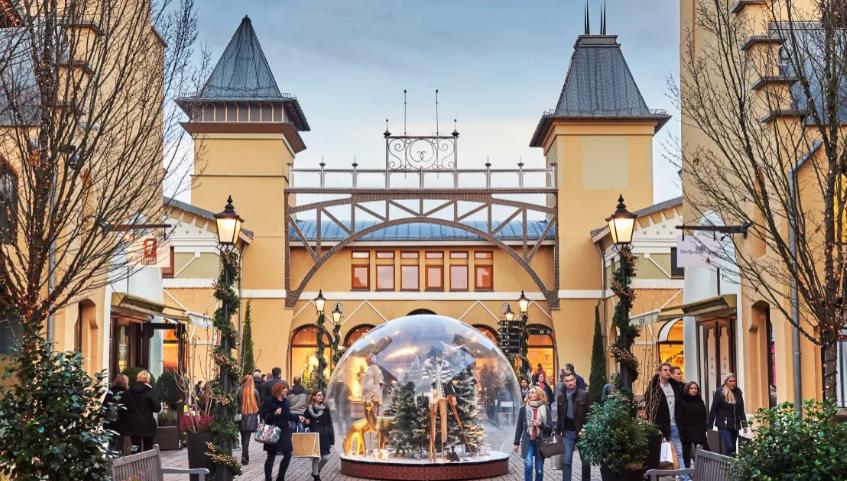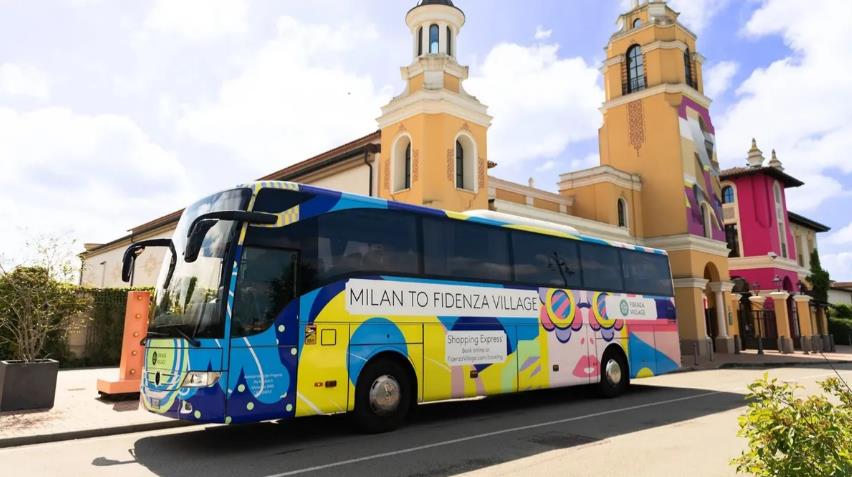https://ae.trip.com/moments/destination-peshawar-21347/
2025 Peshawar Travel Guide: Must-see attractions, popular food, hotels, transportation routes (updated in June)
Peshawar今日天氣
Clear 30-43℃
All Moments About Peshawar
@ SHELTON'S REZIDOR.
We recently indulged in the delightful High Tea experience at Shelton's Rezidor, and it was truly unforgettable! Served daily from 3pm to 6pm, this indulgent spread offers exceptional value at just 1520 (inclusive of tax). The array of finger sandwiches, sweet treats, and savory delights was impressive, and the quality of each item did not disappoint. The elegant ambiance and attentive service only added to the experience, making it the perfect spot to relax and unwind with friends or family. Whether you're a local or just visiting, Shelton's Rezidor's High Tea is a must-try – I highly recommend it.ASROY.ROY3@ THE PESHAWAR SERENA HOTEL.
The Peshawar Serena is the best hotel in the city. Their recent renovations have been very good. The hotel and it's room feel new and refined. They're clean, comfortable and well kept. My only gripe is that there was no soap or hand wash available in the bathroom. Anyway, location is great and their staff is superb. Their rooftop restaurant serves decent food, has a good view (especially at night) and has some of their best staff. If you're looking for event management, the Serena conducts most of the biggest corporate and government events in the city. Their staff is experienced and trained. They should quickly reopen their ground floor restaurants/cafe.ASROY.ROY5@ THE PESHAWAR MUSEUM.
The Peshawar Museum (Urdu: پشاور میوزیم(colloquial); پشاور عجائب گھر (official)) is a museum located in Peshawar, capital of Pakistan's Khyber Pakhtunkhwa province. The museum houses a collection of Buddhist artwork from the ancient Gandhara region.ASROY.ROY3@ TATARA PARK.
Tatara Park (Urdu: باغ تاتارا, romanized: Bagh-e-Tatara, Pashto: د باغ تاتارا) is a recreational park located in Phase 1, Hayatabad, Peshawar. Tatara Park has been developed from a garden lawn with man-made lakes, into a theme park.ASROY.ROY3@ SETHI HOUSE MUSEUM.
Sethi Mohallah (Urdu: سیٹھی محلہ), sometimes called Sethian Mohallah, is an old and traditionally arranged neighbourhood in the old city of Peshawar, Pakistan. The mohallah contains seven South Asian mansions built by the Sethi family that were built in a style reminiscent of Central Asia with elaborate wooden carvings. The houses were completed in the late 19th centuryASROY.ROY3THE ICONIC AND HISTORIC MOSQUE.
The Mahabat Khan Mosque (Hindko and Urdu: مہابت خان مسجد) (Pashto: مهابت خان جومات), sometimes spelt Mohabbat Khan Mosque, is a 17th-century Mughal-era mosque in Peshawar, Pakistan. The mosque was built in 1630, and named after the Mughal governor of Peshawar, Nawab Mohabat Khan Kamboh, father of Nawab Khairandesh Khan Kamboh.[1] The mosque's white marble façade is considered to be one of Peshawar's most iconic sights.ASROY.ROY3Peshawar Pakistan
Peshawar is the capital of the Pakistani province of Khyber Pakhtunkhwa and its largest city. It is the sixth-largest city in Pakistan, Peshawar is the capital of the Khyber Pakhtunkhwa province of Pakistan. It is also a cultural and economic hub of Khyber Pakhtunkhwa. The city is famous for its food and tourism as it is one of the oldest cities of Pakistan with a recorded history that dates back to 539 BC. Dum Pukht is a favorite dish of Peshawar that is prepared with the meat of mutton or beef. The pieces of meat are cooked in low heat in its individual fat along with onion, cardamom, potatoes, yogurt, red pepper, garam masala, salt, garlic paste, and oil.amirhassan7415a simple b
a simple but happy day. #wintergetaway #tripinspired #peshawar #unforgettableexperiences#instagramworthydestinations#uniquelodging#newyearstrip#decembertravel#travelsnacks#travelinspiration#givethanks#wintergetaway#tripinspired#happynewyear_TS***ik6Namak mand
Namak mandi.. Peshawar Famous for peshawar spicy cuisine If ypu happen to visit peshawar, a traditional old city with old relics and buildings like the old story teller bazar, some grand mosques, forts and ancient remains with a tinch of moxern infrastructure and hotels, must visit namak mandi ( a food street) to have a taste of life #holidayvacation#wintergetaway#staycation#awesomepic#couplestripBB Pak6goof time
goof timeE61***634#tripaway
#tripaway good timeE61***635#triplocal
#triplocal wow it's Amazing to imagine #Ab #triplocalAb HAseeb AFridi4#tripaway
#tripaway Life has no #limitations, Except the ones You Make. #AB #tripawayAb HAseeb AFridi4Cute AB..R
Cute AB..R 🥰🥰 #triplocalAb HAseeb AFridi4#tripaway
#tripaway we miss the Trip.com but hoped we started traveling again with Trip.com and enjoy to buying tickets on mobile very easily together Trip.com so I wished to run everything and smoothly life , thanks a lot #tripawayE58***673Hayatabad
Hayatabad peshawar, pakistan is a beautiful and modern township. It has beautiful parks, modern infrastructure, greenery, trees and beautiful mosques. The town is connected to city with the help of rapid bus service, which is also very scenic. #triplocalBB Pak14#tripaway
#tripaway the beautiful pakistan , with its rich flora and fauna and unexplored beauty is a destination worth travelling. not only is Pakistan a budget travel but it also has almost everything to offer for a tourist besides the generosity of locals . I love travelling Pakistan ..in summers the northern part and winter, the southern landscape #tripawayBB Pak14#winterget
#wintergetaway_TS***887- _We***975
Peshawar i
Peshawar is a city near the Afghan border and one of the top ten war-torn cities in the world. The city has had too many tears and sorrows, but the feeling of being really close is not the same. There are happiness and smiles here. There is an uncle in the office who sent us the ring. As the oldest city in Pakistan, the biggest regret is that the Peshawar Fortress did not go in. To enter the castle, you need to apply for a pass in advance.YIYI NOTES.13Walk the World Series Asia: Peshawar Old City, Pakistan
Peshawar, which means "City of a Hundred Flowers" in ancient Sanskrit, is a city with a profound history and rich culture. It was once the capital of the Kushan Empire, the birthplace of Gandhara culture, and a trade center between Central Asia, South Asia, and the Middle East. Historically, it was one of the centers of Buddhist culture, visited successively by the Chinese Jin Dynasty monk Faxian, Northern Wei envoy Song Yun, and Tang Dynasty monk Xuanzang. Xuanzang described it as a "land of abundant flowers and fruits" in his book "Great Tang Records on the Western Regions." Since the end of 2014, the security situation in Peshawar has gradually improved following the Pakistani military's "Operation Zarb-e-Azb." Located on the border between Pakistan and Afghanistan, Peshawar is one of Pakistan's most ethnically distinctive cities and has been a major trade hub between the South Asian subcontinent and Central Asia for centuries. This unique geographical position has made Peshawar a focal point of contest among various forces. In recent years, Peshawar has been undergoing positive transformation. To attract tourists and foreign investment, Pakistan's Khyber Pakhtunkhwa province invested $2.5 million to renovate the Food and Heritage Street located in Peshawar's old city. This old street, featuring architecture from the 18th to 19th centuries, has been revitalized after renovation, quickly attracting a large number of local residents and tourists. The people of Peshawar are also known for their hospitality. Here, you will hardly see people wearing modern clothes like jeans and T-shirts; instead, traditional ethnic attire is common. Women mostly wear burqas, showcasing a unique cultural style. Walking through the streets of Peshawar, you will be touched by the warmth and friendliness of its people.Layla)kkLOVEA mythical campsite beneath the towering
#cityplaybook A mythical campsite beneath the towering Nanga Parbat.#fairymeadows Pakistan Mountain City Guide Northern Pakistan is a paradise for mountain lovers, with cities that serve as gateways to some of the world’s most breathtaking landscapes. Skardu offers stunning views of the Karakoram Range and access to iconic peaks like K2 and the serene Satpara Lake. Nearby, Hunza Valley’s Karimabad town is famous for its majestic forts, crystal-clear lakes, and panoramic views of Rakaposhi and Ultar Sar. Gilgit, the regional hub, blends rugged mountain culture with modern conveniences, acting as a base for trekking and exploring valleys like Naltar and Phander. In Chilas, travelers can explore ancient rock carvings while soaking in views of the Indus River winding through towering peaks. Each city combines traditional mountain hospitality with emerging cafes, boutique guesthouses, and opportunities for adventure sports, making northern Pakistan a must-visit for any mountain enthusiast. #pakistanAom_92googles ph
googles phonesTayyabpanezai26@gmail.comCome for the views, stay for the people.
#cityplaybook Come for the views, stay for the people."#pakistan Travel Tips Cultural Etiquette: Dress modestly, especially in rural and conservative areas. Photography: Always ask for permission before photographing people. Local Sim Card: Purchase a local SIM card for better connectivity. Stay Informed: Regularly check travel advisories and local news for any updates.Aom_92Skardu skies, Karachi nights,pakistan
#cityplaybook Skardu skies, Karachi nights, and everything in between." Safety & Travel Advisory Current Situation: Due to recent military skirmishes between India and Pakistan, tensions have escalated, prompting several countries to issue travel advisories. It's advisable to avoid areas near the India-Pakistan border, the Line of Control in Pakistan-administered Kashmir, Balochistan province, parts of Sindh, areas close to the Afghanistan border, and numerous regions in Khyber Pakhtunkhwa province. Health Advisory: Typhoid Fever is prevalent in Pakistan, primarily transmitted through contaminated food and water. Travelers are urged to get vaccinated and take precautionary hygiene measures. #pakistanAom_92Great picture
Peshawar cityMuhammad1212345Thats amazing time
Isaac Muhammad...........Day Trip Itinerary for Kuala Lumpur
📍 Itinerary Overview 🚩 Sightseeing Route 🏖️ Must-Visit Attractions 🚇 Transportation 📷 Photo Spots 🍜 Local Cuisine 🏠 Accommodation 💡 Tips_TI***73

Popular Peshawar Topics

2025 Recommended Attractions in Peshawar (Updated June)
13 posts

2025 Recommended Restaurants in Peshawar (Updated June)
3 posts

2025 Recommended Guides in Peshawar (Updated June)
3 posts

Destinations related to Peshawar

2025 Bangkok Travel Guide: Must-see attractions, popular food, hotels, transportation routes (updated in June)
42787 posts

2025 Seoul Travel Guide: Must-see attractions, popular food, hotels, transportation routes (updated in June)
30121 posts

2025 Tokyo Travel Guide: Must-see attractions, popular food, hotels, transportation routes (updated in June)
20987 posts
- 1
- 2
Post
更多推薦
Popular Trip Moments
Come for the views, stay for the people. | Skardu skies, Karachi nights,pakistan | Travel guide to Peshawar, a famous tourist city in Pakistan, suitable for checking in and taking photos📸 | A mythical campsite beneath the towering | Movement | @ SHELTON'S REZIDOR. | @ THE PESHAWAR SERENA HOTEL. | @ THE PESHAWAR MUSEUM. | @ TATARA PARK. | @ SETHI HOUSE MUSEUM. | THE ICONIC AND HISTORIC MOSQUE. | Peshawar and Truck Art | Peshawar city | Lets Explore peshawar | The Balahisar Fort - Wall against invaders from Afghanistan | Shalman Park Peshawar Pakistan | Peshawar Pakistan
Recommended Attractions at Popular Destinations
Attraction near Bangkok | Attraction near Manila | Attraction near Tokyo | Attraction near Taipei | Attraction near Hong Kong | Attraction near Seoul | Attraction near Kuala Lumpur | Attraction near Los Angeles | Attraction near Shanghai | Attraction near New York | Attraction near Shenzhen | Attraction near Osaka | Attraction near Singapore | Attraction near London | Attraction near Guangzhou | Attraction near San Francisco | Attraction near Beijing | Attraction near Macau | Attraction near Bali | Attraction near Jakarta | Attraction near Paris | Attraction near Ho Chi Minh City | Attraction near Istanbul | Attraction near Phuket | Attraction near Chicago | Attraction near Seattle | Attraction near Toronto | Attraction near Orlando | Attraction near Cebu | Attraction near Chiang Mai
Popular Restaurants in Peshawar
Arabian Chick Fastfood Restaurant | Food Punch | Mr. Cod | Cafe Di Milano | Tai Pan (Pearl-Continental Hotel) | Dunking Donuts Mall Road | Marco Polo | Crispy chicken | Taste and Train Restaurant | KFC | The Green Olive's | Flipperz Pizzeria | McDonald's | Shiraz Ronaq | Cafe Crunch | P2 P1 Moroso | Central Perk Cafe | Mr.Cod Hayatabad | Bukhara (Roof Top Barbecue) | Gloria Jean's Coffee Peshawar | Bread Chef Cafè And Bakers | Shelton's Layalina | Hardee's | Spring Rose | Jani Cone | BAR.B.Q Tonight | Downtown Bistro Hayatabad | Iqbal Burger | Two Guys Fries | Newyorker Pizza
Popular Ranked Lists
Top 10 Best Things to Do in Hechi | Popular Must-Visit Restaurants in Dubai | Popular Best Things to Do in Jieyang | Popular Local Restaurants in Bangkok | Popular Luxury Hotels Near Silivri | Popular Must-Visit Restaurants in Songyang | Popular Best Things to Do in Jingmen | Top 5 Best Things to Do in Danzhou | Top 3 Luxury Hotels in Al Madinah | Popular Must-Visit Restaurants in Auckland | Top 3 Best Things to Do in Linxia Prefecture | Popular Luxury Hotels Near Fishers | Top 4 Best Things to Do in Libo | Popular Premium Hotels Near Dearborn | Popular Luxury Hotels Near Tonosho | Popular Must-Visit Restaurants in Madrid | Popular Luxury Hotels in Mirbat | Popular Luxury Hotels in Al Ula | Popular Must-Visit Restaurants in Kuala Lumpur | Popular Must-Visit Restaurants in Florence | Popular Luxury Hotels Near Wuppertal | Popular Must-Visit Restaurants in Taipei | Popular Must-Visit Restaurants in Barcelona | Top 9 Local Restaurants in Maoming | Top 6 Best Things to Do in Jincheng | Popular Luxury Hotels Near Norwich | Popular Luxury Hotels Near Taean-gun | Popular Must-Visit Restaurants in Phuket | Popular Luxury Hotels Near Province of Palermo | Popular Must-Visit Restaurants in Hong Kong
Payment Methods
Our Partners
Copyright © 2025 Trip.com Travel Singapore Pte. Ltd. All rights reserved
Site Operator: Trip.com Travel Singapore Pte. Ltd.
Site Operator: Trip.com Travel Singapore Pte. Ltd.